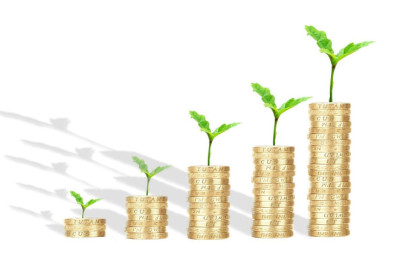views
Mastery of health economics can unlock significant opportunities for professionals, driving efficient use of resources in healthcare and influencing policy to improve outcomes. A master's degree in health economics prepares graduates to tackle complex challenges in the sector, equipping them with analytical and strategic skills required to thrive. Whether you're interested in the pharmaceutical industry, governmental policy, or academic research, a specialization in health economics provides a strong foundation for a meaningful career. Keep reading to discover the breadth of opportunities that await a health economics master's graduate.
Exploring the Scope of Health Economics in Modern Healthcare Systems

Health economics is a field that focuses on the allocation and utilization of healthcare resources, aiming to balance cost, quality, and accessibility in modern healthcare systems. Health economists analyze these factors to drive efficient healthcare delivery. They address challenges like resource scarcity and prioritize interventions that offer the most benefit. They also assess the economic impact of diseases and health behaviors on individuals and societies.
Health economists play a crucial role in pricing and evaluating the cost-effectiveness of new medical technologies and treatments, helping healthcare providers and insurance companies understand the value of innovations while ensuring patient care remains affordable. The intersection of health economics with big data has opened new avenues for analyzing trends and making informed predictions about future health needs.
Career Paths for Health Economics Masters Graduates
Master's in health economics graduates have diverse career paths, including high-level positions in healthcare administration, policy analysis, and consulting. They are crucial in managing healthcare budgets and optimizing expenditure.Private sector opportunities are abundant, particularly in pharmaceutical and health insurance firms, where health economists contribute to product pricing strategies and insurance coverage plans.
They also lead research projects, publish influential papers, and teach the next generation of health economists. Health economists are also sought after by not-for-profit organizations and international bodies, who analyze and manage health programs in different countries.
A masters health economics degree is highly relevant in the pharmaceutical industry, equipping graduates to shape market access, pricing, and reimbursement strategies critical for the successful launch of new medications. These health economists assess economic impact, working to ensure drugs are both accessible to patients and profitable for companies, often collaborating with regulatory agencies to validate a drug's value through pharmacoeconomic models.
In drug development, health economists play a vital role by analyzing the economic burden of target diseases and advising on clinical trial design and commercialization strategies. Their expertise also supports pharmaceutical policy and advocacy, representing companies in discussions with government bodies and insurers to highlight the economic benefits of innovative therapies.
The Role of Health Economists in Government and Policy Making

Health economists play a crucial role in government health departments and policy-making bodies, analyzing health services and intervention policies to shape national health strategies and allocate public funds for equitable healthcare access. They also contribute to international health policy through organizations like the World Health Organization, evaluating global health initiatives and addressing health disparities.
Health economists use an evidence-based approach to policy making, producing studies and models to forecast the impact of proposed health policies, providing a rational basis for decision-making amidst political and social pressures. During crises like pandemics, health economists' expertise is especially important, as they help measure the economic impact of events and formulate effective resource management strategies.
Advancing Academic and Research Careers in Health Economics
Academia provides a rich pathway for those with a master's degree in health economics. These experts research health expenditure and health outcomes, contributing to the knowledge base of policymakers and practitioners. Health economists are at the forefront of healthcare innovation, applying rigorous scientific methods to solve pressing issues and influencing future healthcare provision.
Their research often leads to real-world applications that improve health system effectiveness. Health economists also make a significant impact in teaching, shaping future experts and ensuring a continuous supply of professionals in health economics. They engage with scholars, industry players, and governmental agencies, fostering multidisciplinary approaches and innovative solutions to complex health economic problems.
Overall, a master's degree in health economics opens up a multitude of career opportunities in various sectors. The broad applicability of this discipline ensures that graduates can pursue a profession that aligns with their interests, whether that be in shaping public policy, advancing pharmaceutical innovation, or contributing to academic research. With the growth in complexity of healthcare systems, the skills and insights provided by health economics are more valuable than ever.











